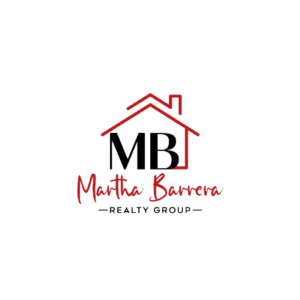BUYERS GUIDE & FAQ
Yes, foreigners can own property in Thailand in their own name and below we have listed the most common available ownership options.
Leasehold ownership can be registered for up to 30 years at a time at the land department but usually developers offer a renewal clause for two additional periods of 30 years. (30+30+30 years) A common misconception is that Thai law only allows for a maximum of 90 years in total for a leasehold, but there is in fact no time limit on how many times a lease can be extended from once the first 30 year period have expired. But currently the standard offered by developers is usually for 3 periods of 30 years each.
This means all the owners collectively own the company that owns the land the property is built on, and each owner leases his plot from that company. One common structure is that a dedicated British Virgin Island (BVI) Company is the majority owner by preferred shares in the Thai registered land owning company and each owner in the development receives shares in the BVI Company. This way the owners have the possibility to extend their leases indefinitely.
A Thai registered company can own a property on a Freehold basis and the property then becomes an asset in the company. By Thai law a foreigner will need to have Thai nationals as shareholders in the company.
This is the same type of ownership as Foreign Freehold but for Thai nationals only. Thai nationals can own both the Condominium unit/Villa and also its land which the property is built on under a freehold basis.
This will depend on what type of property you are buying. For Freehold ownership property, the tax payable is as follows:
Transfer fee: 2% of the registered value of the property
Stamp Duty: 0,5% of the registered value of the property
Withholding tax: 1% of the appraisal value or the registered sales value (whichever is higher)
Specific business tax: 3,3% of the appraisal value or the registered sales value.
Note: Specific business tax is only payable if the property being sold has been under the current ownership for less than 5 years. Over 5 years, this tax is waived.
For Leasehold property, the tax payable is less and is currently charged at 1,1% of the appraisal value or the registered sales value (whichever is higher) this is called Lease Transfer fee.
The same tax calculations apply when selling a property in Thailand and who shall be paying it, the buyer or the seller is usually part of the price negotiations on the property but often it is split on an equal basis between buyer and seller. The land departments own guidelines are:
Transfer Fee: Buyer
Stamp duty: Seller
Withholding Tax: Seller
Specific Business Tax: Seller
Condominium Juristic Person – Often referred to as the CJP. This is the legal entity of a Condominium Building responsible for the management of the building. The CJP can chose to self-manage the property or outsource the duties to a property management firm. The Condominium Juristic Person will have to appoint a manager for the juristic. The role is referred to as the Condominium Juristic Persons Manager.
Owners Committee – The condominium or villa development will have an owners committee made up by elected co-owners at the development. This committee is on a voluntary basis and is not a paid job. The owners committee shall represent all the co-owners at the building and work together with the appointed management company to governance the building.
Annual General Meeting – Often referred to as the AGM. Each condominium needs to hold one once a year. This is the time for the co-owners to discuss and vote upon any important decisions to be made at the building.
Rules and Regulations – In short called the RR’s. These are the documents that govern what is allowed and not allowed at a particular building. Example, if pets is allowed or not allowed, it will be stated here.
Thai Condominium Act – This is the Act for which all condominium buildings in Thailand must adhere to when it comes to governance of a building. A specific buildings in house rules and regulations cannot be conflicting with this Act on any of the rules.
“Rai” of Land – This is the Thai measurement for a land area. 1 Rai = 1,600 Sqm.
“Wah” – Another Thai measurement. 1 Wah = 4 Sqm
“Chanote” – This is the form of ownership title deed that grants its owner full rights over the land to use as they see fit. This type of title deed is registered at the land department and it’s the preferred type of title deed, also referred to as Freehold title deed.
“Tabien Baan” – The address and resident registration book issued by the local municipality for every apartment, house or place to live in, often referred to as The Blue Book.
Due Diligence – The performance of an investigation with a certain standard of care and caution of a property, person or business before involving in an investment or entering into a contract with another party. Usually part of a lawyers service’s when purchasing a property.

